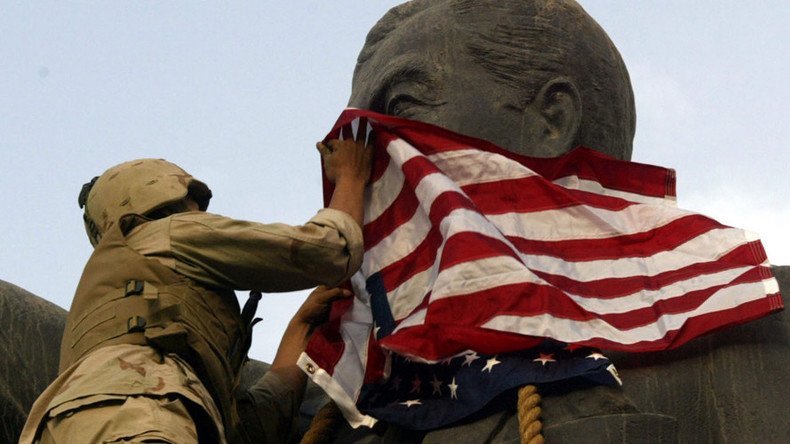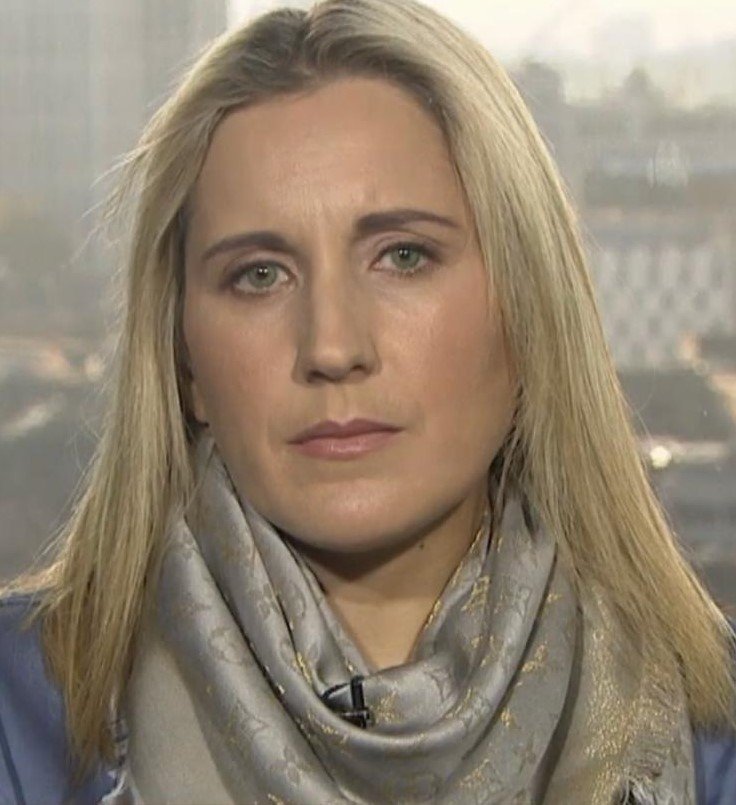What next? America waxes nostalgic for abusive Middle East autocracies

A former CIA operative has expressed a longing for the Saddam era. So why is America suddenly arguing on behalf of oppression as a safeguard against terrorism, at a time when both Iraq and Syria are making such significant advances against militants?
Why the sudden nostalgia over long-gone dictators when so much effort, rhetoric, and theatrics were spent on the need for war over a decade ago?
I will recall here the words of the late President Hugo Chavez before the United Nations General Assembly and argue that I too can “smell sulfur” in that new American volte-face.
Talking about the meteoric rise of the so-called Islamic State, former CIA agent John Nixon, who grilled Saddam Hussein following his arrest, said: “In hindsight, the thought of having an aging and disengaged Saddam in power seems almost comforting in comparison with the wasted effort of our brave men and women in uniform and the rise of Islamic State, not to mention the £2.5 trillion spent to build a new Iraq.”
I would smile at the irony of the situation if not for the millions of lives that were shattered over America’s then-imperious needs to “liberate” Iraq and all those territories the sunlight falls upon. As it is, the Iraqi people do not have the luxury of hindsight following the destruction that befell their nation on account of a ruling elite choosing to play political “musical chairs” to better secure geopolitical hegemony.
Let’s not lose sight of the fact that war broke out in the Middle East when US President George W. Bush imagined himself a grand liberator of men. Or was it really to prevent a lunatic tyrant from unleashing weapons of mass destruction on the Free World? The history has been redacted so many times over the years so as to adapt it to the desired political narrative that it is hard to tell.
Maybe we ought to stick to facts and not imagine past events so that state officials could rationalize blame away from guilty parties. But let’s put aside for a moment the rather distasteful longing Washington has chosen to display for the Saddam era and his ability to keep Iraqis on a tight leash - or so we are told.
This would-be mea culpa is but the introduction of a new rationale - one rooted yet again on division and covert sectarianism. One may argue that with ISIS on the run a new devil had to rise, with the Middle East forever blamed for the chaos others in fact constructed.
There it is … the infamous Shia label: “It is improbable that a group like ISIS would have been able to enjoy the kind of success under his [Saddam Hussein] repressive regime that they have had under the Shia-led Baghdad government,” Nixon wrote.
It is almost as if Mr. Nixon is trying to blame Iraq’s Shia population for the murderous insanity ISIS’s Wahhabism rose to carve itself an empire. Of course, THAT would be incendiary criminal … and may I add eerily similar to those comments uttered by ISIS preachers when making a case for a grand religious cleansing against all things Shia.
Let me briefly recap here: rather than blame the rise of terror in Iraq and by extension the Greater Middle East, on the ideology that has forwarded, supported and carried all ISIS-like militants, that is, Wahhabism, a former CIA operative is now blaming Iraq’s religious majority for the fiasco.
Should we play political necromancy and resurrect Saddam Hussein then?
But that would be making a case for another form of terrorism; surely America would never support despotism? Unless of course, it is … because really rationalizing tyranny is exactly what Washington is vying for. You know now that ISIS is about to bite the dust of its own abomination.
According to Nixon, US President Donald Trump has a chance to “play a very large role” in creating a new order in the Middle East. “This will require making tough decisions and, ultimately, recognizing that we may have to deal with people and leaders that we abhor if we want to help bring stability back to the region and limit the scope of terrorism’s reach.”
Here’s an idea: let’s leave Iraq’s fate to the Iraqis. Or better yet, perhaps it’s time to point the finger at those parties, nations and ideologies, who, from the comfort of their plush palaces in places like Saudi Arabia, have played genocide to satisfy their hunger for power?
Iraq was broken due to terror by design, and not because of its religious demography. Arguing faith as the root cause of terror is ridiculous unless of course, the argument is the criminalization of the religious altogether.
But here is where Nixon’s arguments no longer hold. Saddam Hussein’s legacy lives within ISIS! In which case why shed tears over a complex that has survived within the ranks of Wahhabist-exclusionists?
A report published by Reuters reads: “If Islamic State leader Abu Bakr al-Baghdadi is confirmed dead, he is likely to be succeeded by one of his top two lieutenants, both of whom were Iraqi army officers under late dictator Saddam Hussein.”
Terror can reinvent itself under many different colors - especially when the goal is to rule through brute force. Whether it be through military force or religious fanaticism, the inner sanctum of terrorism remains abject oppression.
The only real question we should ask is whose agenda terror is best serving. Only then will we retaliate against it.
After all, exchanging one terror for another might not be the most intelligent way forward, if Washington is to argue the moral high-ground.
Watch out for those quicksands!
The statements, views and opinions expressed in this column are solely those of the author and do not necessarily represent those of RT.















